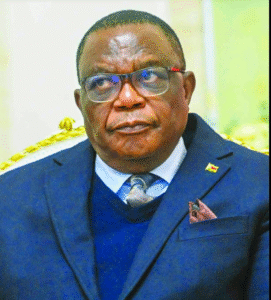ZIMBABWE’S SHRINKING DEMOCRATIC SPACE AHEAD OF THE 2023 ELECTIONS

As Zimbabwe moves closer to its highly anticipated 2023 elections, a troubling reality is taking shape—a shrinking democratic space that threatens the very core of the country’s political future. What should be a moment of renewal and opportunity is being overshadowed by growing authoritarianism, suppression of dissent, and the erosion of democratic principles.
One of the most pressing concerns is the deliberate crackdown on freedom of expression. Journalists, civil society activists, and opposition leaders are increasingly targeted through harassment, arbitrary arrests, and intimidation. These tactics have created an atmosphere of fear, where open criticism of the government is risky, and independent voices are forced into silence.
The government’s continued use of outdated and repressive laws, such as the Public Order and Security Act (POSA) and the Access to Information and Protection of Privacy Act (AIPPA), further restricts fundamental rights. Though parts of these laws have been rebranded, their impact remains largely the same. Peaceful protests are blocked, political rallies are tightly controlled, and access to public information is limited. These laws serve as tools to suppress dissent, hinder civil society, and block opposition parties from freely engaging with the electorate.
State institutions that should operate independently have also become politicised. The judiciary, ideally a guardian of justice and impartiality, is now widely perceived as compromised. There are growing allegations of bias in politically sensitive cases, raising serious concerns about whether the legal system can be trusted to protect democratic rights or fairly adjudicate electoral disputes.
Concerns over the credibility of the electoral process continue to mount. Reports of voter intimidation, the use of traditional leaders to coerce rural voters, gerrymandering of constituencies, and limited access to the voters’ roll have all been raised by election observers and opposition parties. The Zimbabwe Electoral Commission (ZEC) has repeatedly come under scrutiny, accused of operating with opacity and favouring the ruling party.
This environment severely undermines the principles of a free and fair election. A healthy democracy relies on informed citizens, open political competition, and trust in institutions. When these conditions are absent or manipulated, the electoral outcome becomes questionable—even before the first vote is cast.
The erosion of democratic space is not just a threat to political opponents; it affects every Zimbabwean. It weakens public participation, reduces accountability, and leaves citizens with fewer avenues to express their will. The right to vote, freedom of association, and access to information are cornerstones of democracy. When these are undermined, the legitimacy of the entire system is called into question.
It is vital that regional and international stakeholders take this situation seriously. Bodies like the African Union, SADC, and the United Nations must speak out firmly against these trends. There should be greater diplomatic pressure on the Zimbabwean government to reform its electoral laws, ensure the independence of the ZEC, and protect political freedoms.
At the same time, support for civil society, independent media, and human rights organisations remains critical. These groups play a vital role in defending democratic values and holding the state accountable. Their work is difficult and dangerous, but essential.
Despite the challenges, there is still hope. Zimbabweans have shown time and again their resilience, courage, and desire for a better future. The 2023 elections offer an opportunity to either restore faith in democracy or deepen the political crisis. The outcome will depend not just on political players, but on the collective determination of citizens to demand transparency, justice, and reform.
As the world watches, the stakes could not be higher. Zimbabwe stands at a crossroads. The coming months will determine whether the country moves forward toward genuine democracy or slides further into repression. The people of Zimbabwe deserve free, fair, and credible elections. It is time for both local and international actors to rise to this challenge—before it’s too late.



